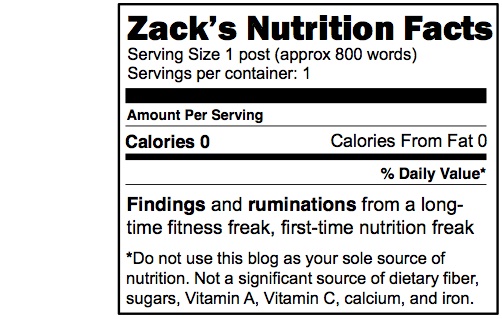I tried searching for a valid source of the following stats, but came up empty. Just a bunch of blog posts and comments referencing each other. The info below is from healthy-water-best-filters.com -- if true, these are pretty startling.
1) The average person drinks about 16,000 gallons (60,600 liters) of water during a lifetime.
2) 75% of citizens in developed countries are chronically dehydrated.
3) In 1/3 of Americans, the thirst sensation is so weak that it is often mistaken for hunger.
4) Effects of MILD dehydration slows down metabolism as much as 3%.
5) For each 1% loss of water, there is a loss of 10% in exercise performance.
6) Research suggests that 8-10 glasses of water a day eases back & joint pain for 80% of sufferers.
7) A 2% drop in body water causes fuzzy memory, trouble with basic math, and problems focusing on a computer screen or printed page.
8) Drinking 5 glasses of water daily lessens the risk of colon cancer by 45%.
9) Drinking 5 glasses of water a day slashes the risk of breast cancer by 79%.
9) Drinking 5 glasses of water a day slashes the risk of breast cancer by 79%.
10) Drinking 5 glasses of water makes you 50% less likely to develop bladder cancer.
11) Research shows that 70% of pre-school children drink no water at all during the day.
Regardless of whether these are true, I've seen some compelling evidence on the benefits of abandoning all beverages besides water. The new HBO series, Weight of the Nation, advises the single best thing one can do is "stop drinking sugar-sweetened beverages." Martin Berkhan, the intermittent fasting guy, often advises against "drinking your calories," even in regard to protein shakes.
I'm not just talking about soft drinks. Store-bought fruit juice, which is pasteurized and treated with chemicals, is bad news -- even the expensive brands like Naked and Odwalla.
Fresh-squeezed juice is delicious and preserves the nutrients and enzymes, but still gets rid of the fiber and starch content, resulting in a harsh spike to your blood sugar. For these reasons, fresh juice should only be enjoyed occasionally and in small amounts. Fortunately, due to the expense and time requirement of home juicing, it's pretty tough to go overboard.
I used to have a huge glass of OJ every morning with my cereal, and often treated myself to a Vitamin Water in the afternoon. I was amazed when I actually looked at the staggering amount of sugar involved in these beverages compared to other foods I was eating. And these drinks are nothing compared to some of the crap out there.
Don't believe the hype of the "healthy" juice marketing ploys, either. V8 fusion disguises the taste of vegetable juice with fruit juice, for people who don't like vegetables. Aside from what this premise says about the state of American dietary preferences, it's the most disgusting drink I've ever tasted. To learn more about the sugar content of your favorite drinks, the Harvard School of Public Health has a handy guide.
Since delving into paleo, I've essentially made water my only beverage, and I believe this change has been beneficial. My only two vices are tea (no sugar added), and alcohol. I like a caffeine fix once in a while, but I try to have black tea only a few times per week. Same with alcohol. I have herbal tea whenever I want.
 |
| Jeremy delights in telling Gloria all about his cool new water filtration system |
But what about the quality of the water itself? In The Paleo Answer, Loren Cordain devotes an entire chapter to walter purification. According to Dr. Cordain, the chlorine in the tap water we drink may contribute to a variety of cancers. And usually, bottled water isn't any better; in fact, it's worse: "40 percent of all bottled water is simply taken from municipal tap water. Almost 22 percent of bottled water brands contain chemical contaminants at higher concentrations than stipulated by governmental limits. Municipal water supplies are not allowed to have any fecal bacteria, whereas no such limitations are required for bottled water. Similarly, governmental regulations impose limits for bisphenol A (BPA) and phthalates in tap water, but no such rules exist for producers of bottled water."
Fluoride in our water is also discussed as a potential contributor to health concerns.
So what to do? Home filtration systems exist in two categories: point-of-use and point-of-entry. Point-of-entry purifies water for the entire home, so that you're protected from breathing chlorinated steam in the shower. (This isn't negligible. A ten minute shower can increase your blood chloroform levels 100%). Point-of-use filtration ensures water is purified after traveling through your pipes, which could be copper or plastic compound -- both may have lots of nasty stuff. This latter filtration makes sense for faucets from which you drink.
Do I have either type of filtration in my residence? No. I'm just giving you some facts.
I did some research on filtration pitchers, and found that Clear2O ranked highest in filtration ability, but you have to hook the pitcher up to your faucet every time you want to fill it up. That's inconvenient, so I have a Brita.
But all this filtration stuff is dwarfed by the importance of drinking water. Absolutely do not let water quality fears scare you away from drinking as much as you can. Drink your water, people!
